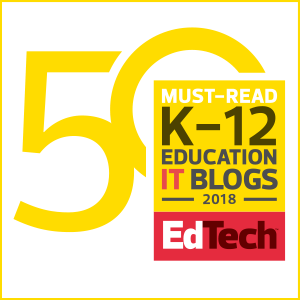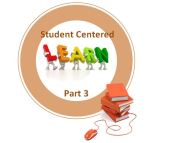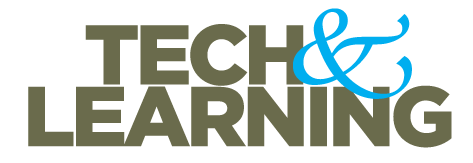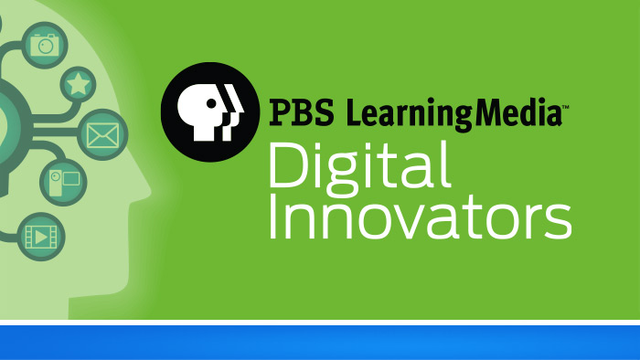Welcome to another post, one that I hope you will find valuable and will pass on to others. please take a moment to subscribe by RSS or email . Your subscriptions mean a lot to me! I’ll have additional exciting resources and information in future posts coming your way. You can also follow me on twitter (mjgormans) and of course visit my 21centuryed Wiki. Now, enjoy a visit designed to help you reflect on how students are being taught… or not taught to research! Have a great week – Mike
Note – If you will be attending MEC in Tempe, Arizona or CUE in Palm Springs, California this March 2011 please introduce yourself at one of my sessions. I am making the trip from Indiana and will have two presentation at each conference. They include Digital Immigrants and Digital Natives… No Future Left Behind, STEM to STEAM to STEAMIE… Turning Up The Temperature, and A 7-Step Approach to Website Evaluation… A-G.
I often present on the importance of Digital Immigrants (most teachers) facilitating Digital Natives (most k12 students) in the use of digital technology. You see, I believe that while today’s digital natives have a affinity for using digital tools… they often do not have the life experiences to utilize these tools to their greatest potential. One example I would like to present to you today is the use of Google as a search engine. Since I am still in the classroom I am able to watch students perform various searches with Google. I have the opportunity to see what I claim is inefficient input resulting in a multitude of needless results from Google. Assisting our digital natives in the process of searching is something that all of us as digital immigrants can help with. We have the life experiences and educational background to help our students fine tune their digital skills and become more productive in research.
I would suggest that educators direct students towards the Google Advanced Search Engine even before using the Google Basic Search. In fact, I would further suggest that an Advanced Search be used until students understand how to use these advanced techniques in a Basic Search. Why? First, I do not see these skills as advanced techniques. I see them as a skill set necessary in finding information in a productive manner. When educators ask students to search and find information on the internet… it is not to just get the answer. It is to learn an important process that will serve them through future schooling and eventual careers. Let’s take a look at the Google Advanced Search Engine and see why it really should be a basic prerequisite!
Twelve Reasons To Teach Searching With Google Advanced Search
1. The Advanced Search teaches important syntax such as STRINGS, AND, NOT, and OR. In the first part of the Advanced Search as shown below students will learn the following:
All these words (above picture) allows the AND statement (AND is actually not needed in Google since it is inferred when multiple words are put in. This is an important concept since I have seen students many times needlessly type in the AND command. (Note that small words such as articles are omitted – a, the, of, an, as… etc).
This exact wording or phrase (above picture) allows words to be put together in a STRING. In this case Google will look for a string of words that must be together in a website. This is great when looking up an author, movie, quote, or for words that must be kept together (nuclear fission).
One or more of these words (above picture) allows the use of the OR command. This is valuable when a researcher wants to look for more than one word… but does not want to eliminate a page because all the words cannot be found in a specific page.
But don’t allow pages that have any of these unwanted words (above picture) allows for the NOT statement to be used. This is very useful in eliminating unwanted words and results. Often called the NOT command and uses the (-) sign in a Google Basic search. An example would be looking for the country Turkey while eliminating results for the bird turkey.
2. The Advanced Search teaches about a search through its tip links. In the picture above I have selected the tip for using the (-) or NOT command. The tip explains how to use it in the basic search. This may be one of the best reasons to include the Advanced Search as a teaching tool.
3. The Advanced Search teaches syntax by taking input and displaying how the search would look in a Basic Search (below picture). This is displayed at the top of the Advanced Search Page as the search words are typed in. Once again, students learn how the Basic Search should be structured. This reinforces the concept that proper input of search terms will increase efficiency and until students knows how to use the Basic Search effectively, they may be more productive in Advanced.
Note in the picture above that a search is being made for the phrase “one small step for man” outside of the reference to Neil Armstrong. Notice that the top of the page allows the student to see how this would be built in a Google Basic search. This will apply to all of the techniques available in Google Advanced search.
4. The Advanced Search teaches how to search for pages in any language (below picture). What an awesome way for students to explore a foreign language they are studying or get primary resources on an event from the source country. This is actually an easier way to search than in the Basic. Even more importantly, students can then enter the website for translation. Translation is usually found at the top of the website, or one can use http://www.google.com/language_tools?hl=en to translate. This is not integrated in the Basic Search Box.
5. The Advanced Search teaches how to do the search for alternate resources in an easy manner (below picture). Of course, the syntax is available at the top of the page for those wanting to try it next time in a Google Basic Search. Educators and students can find powerpoints, Google Earth files, spreadsheets, PDF files, Flash files, Word files, and even Autodesk files. Great for research and even better for teachers wishing to find some lesson plan material.
6. The Advanced Search teaches how to search inside of a website or domain (below picture). This can be useful for limiting a search to a .gov or .edu, or possibly to a specific website such as nasa.gov, youtube.com, or census.gov. You will note that the Google Search at the top shows you how to put this in the Basic Search
To investigate four more reasons to teach with Google Advanced Search, click on the Date, usage rights, numeric range, and more link on your Google Advanced Search Page.
Please note that only three of the filters below translate into a Google Basic Search. They include Where your keywords show up, Numeric range, and Important links. The others are valuable and prove how important an Advanced Search can be because they provide great information and are easy to use in the Advanced Search.
7. Advanced Search teaches how to specify to return results according to date (below picture). This is very valuable for finding timely information. Students looking up a current event or breaking news story may want to use this feature. Remember, the default is (anytime). It is also a great way to emphasize whether currency of information is relevant to the research topic. This does not translate into the Google Basic Search Box.
8. Advanced search teaches how to specify a search related to a website’s usage rights (below picture). This is a gold mine for those wishing to use, share, modify, or remix information. Also, it is a great way to teach students about copyright and creative commons rights. It is important to observe the rules governing how an item may be shared, and to make students aware of this. This is especially helpful when searching for pictures in the Advanced Image Search
9. Advanced Search teaches how to specify to search for keywords in a specific place on a website (below picture). This is a tool that can be really useful in narrowing down results. First, the default is (Anywhere In Page). This includes all the possibilities, but may actually be too broad in scope. When getting a large number of returns, one could narrow down returns by requesting that keywords be listed in title. This will narrow the search and possibly lead users to a more specific subject, since keywords in a title tend to emphasize content in an article. In the same way, URL and Links to a page may lead the researcher to more specific and relevant information This does display in the Google Basic Tool Box above so that one can see what it would look like in a Basic Search.
 10. Advanced Search teaches how to specify to find websites from various regions of the world (below picture). This is a great way to teach students about bias and regional differences. This part of the search engine allows the student to look up web pages published in a specific region or country. This technique is great for current evenst, allowing the searcher to get information from the country of origin. A teacher should encourage students to compare and contrast the same news story coming from two different areas or regions. Students can study a subject, such as the American Revolution, from a British, French, Russian, or United States perspective. What is Russia’s take on the Space Race, Cuba’s thoughts on the Bay of Pigs, or China’s research on Global Warming? This tool does not show up in the Basic Search Tool Box and is another reason to use the Advanced tools.
10. Advanced Search teaches how to specify to find websites from various regions of the world (below picture). This is a great way to teach students about bias and regional differences. This part of the search engine allows the student to look up web pages published in a specific region or country. This technique is great for current evenst, allowing the searcher to get information from the country of origin. A teacher should encourage students to compare and contrast the same news story coming from two different areas or regions. Students can study a subject, such as the American Revolution, from a British, French, Russian, or United States perspective. What is Russia’s take on the Space Race, Cuba’s thoughts on the Bay of Pigs, or China’s research on Global Warming? This tool does not show up in the Basic Search Tool Box and is another reason to use the Advanced tools.
11. Advanced Search teaches one how to look up information in a numeric range (below picture). Perhaps a researcher wishes to search between a set number of years, such as 1800-1900. Specifying a dollar amount such as $250 – $500 or searching for a distance range 10 miles – 100 miles could be valuable in finding needed information. A student may even wish to look up a range of page numbers. This will translate above in the Google Basic Search Box.
12. Advanced Search teaches how to find important links and websites similar to one that was useful (below picture). This includes two useful tools. A user who really finds a particular site useful may want to enter that page’s URL into the Find Pages Similar To The Page line. This may lead to other sites that provide needed research information.Using the Find Pages That Link To The Page may also lead the user to other useful sites. This Link To The Page tool can also be used to evaluate a website by determining the number, and type of pages linking to it. In fact, I teach people to use Find Pages That Link To The Page when evaluating Web Pages using what I call Good Links. (Starting with a space before entering the address in the Find Pages That Link To The Page form will yield different and sometimes better results). This will show up in the Google Basic Search Box.
Also be sure to check out both the safe search feature and the readability feature as both can be valuable for classroom use. As you can see the Google Advanced Search, used correctly, will facilitate today’s digital natives to expand their digital abilities while promoting productivity and learning in the classroom. It’s you and I, the digital immigrants, who can make it happen! In closing, please take a moment to subscribe by RSS or email! Your subscription means a lot to me and I thank you in advance. Want to know what else is coming your way in future posts? Then take a look below! In fact you can also give this article a retweet if you scroll to the bottom! Thanks, and until next time… start thinking of ways you can advance your students with Google. Have a great week! – Mike
Coming to 21centuryedtech. Sign up by RSS or Email and forward to a friend!
* Are There Really Whales In Lake Michigan?… A Seven Step Approach To Website Evaluation (A-G) – In this seven part series I will deliver what I believe to be a powerful and meaningful way to teach web site evaluation. It will include downloadable powerpoints, activity sheets, information sheets, posters, and PDF booklets.
* Pushing The Process In Project Based Learning – In this multi-post, readers will discover one of the best places to learn about PBL, learn how to pump up the power of PBL with technology integration, and learn about some of the key highlights of PBL including project development, writing that driving question, and how sports and athletics are really related.
* A Message From An Almost Analog Native – Wait til you hear about my encounter with an almost analog native. This post is written in the style of my Letter From Santa and I Teach Because I Can’t Do Anything Else. Enjoy a message that celebrates real teaching… no, it’s not just 21st century! You will want to share!





























Totally agree with teaching students search techniques. I do this with my own students.
The terms ‘digital natives’ and ‘digital immigrants’ increasingly annoy me though because so many of the so called ‘digital natives’ are actually not that great at using technology, they are just used to it because they have grown up with it.
If we had Facebook when we were younger, we would have used it too!
Hi Colleen – So nice to hear from you! I agree with you. Everywhere I go I stress that we need to teach today’s student how to use the technology they have so widely accepted. It is our life experience that is so valuable and something they do not have. So many times teachers assume they do not know enough about the technology, but in reality teachers have so much life experience. Educators have a world of knowledge to help guide students to both productive and acceptable use of all the technology available. It is our job to teach them how best to use it! Thanks for your important thought, a reflection we all need to consider! By the way that math blog is looking great! You are including some great information! Have an awesome week and please continue to return! – Mike
Hi! Thank you for these very useful pieces of information. I teach sixth grade and when we do research projects, I try to help them find the most reliable resources; however, I do not always know what is most reliable myself. I have educated myself on how to find a source that would be okay to use, but have yet to find a way to really educate my students on what they should and should not be using. I appreciate your information!
Kylene – I appreciate hearing from you and reading your reflection on research. I think half the effort in research has to go toward those pre-search strategies. It is at this point that students decide what it is they are looking for, keywords needed, and techniques that can be used in a search engine. It is for this reason that I believe the Google Advanced search helps facilitate this. Keep working with those sixth graders… they are at a wonderful age to learn and apply good habits. Thanks for what you do and please continue to return. Have a wonderful week! – Mike
This is great advice. I’m in the midst of student teaching myself, on the verge of earning my teacher certification, so this post is interesting to me because I consider myself a “digital native” like my students are. I’ve been using computers for school-related purposes since elementary school, and the internet became available at school in my later middle school years. I have only recently learned of some of the advanced Google search features myself, so I think it is becoming important, not only for public school teachers to introduce search instruction to their students, but also for “digital native” students in teacher education programs themselves to learn how to teach the search features.
Hi Sara – First welcome to an awesome profession! I know you will find some great people to work, collaborate and learn from in both your eventual school assignment and by developing a PLC outside of your building and in the virtual environment. Your thoughts and ideas came to me at a timely period as I writing a presentation keynote that I will soon deliver to several hundred student teachers that are soon to graduate here in Indiana. You bring up valid points and it is just a reminder that we all must keep facilitating our own professional development. I wish you the very best as you continue your journey to the classroom. I know you will find both student teaching and your upcoming career most rewarding! I wish you the very best and please continue to return! Have a great week! – Mike
This was a fantastic post. Great information that I can share with teachers and students at my school. As a librarian I am always looking for ways to make information literacy more relevant. These search techniques are useful at all grade levels in all subjects. Thanks!
Debra – I appreciate your kind words and am so glad that it could be useful to the staff at your school. I have a complete series coming out on web page evaluation that I think you may enjoy. Please encourage others to visit and sign up for an RSS or email feed. It is always great to help a teacher-librarian. My wife serves in this capacity at a middle school. She is constantly trying to get the word out to teachers. Keep up the outstanding effort your profession does at serving both educators and students! Your services are valuable! Again, thanks for the comment and please continue to return so that I can also learn from you! – Have a wonderful week! – Mike
Mike thank you for responding back. Should have known that you had some connection to a school librarian! Also found your thoughts on digital natives to be very accurate. They may be surrounded by technology but they still need guidance in using it. Especially when it comes to evaluating sources and finding the best sources they need much guidance. Looking forward to your next post.
Pingback: Daily Links 03/07/2011 | EduEyeView
Thanks for the link! – Mike
Here’s a story that shows why teachers need to be taught search strategies.
I was standing at the local public library circulation desk when a high school teacher came in looking for a novel. The library didn’t have what she wanted, so the clerk suggested the teacher search the library system database for the title. The clerk added, “You’ll get between 2 and 3,000 responses and you’ll have to sort through them to find the one you want.”
I piped up with the suggestion that the teacher use advanced search with the title and author’s last name.
The teacher responded, “That is way too much work.”
I’m still recovering from that comment.
Linda,
I really appreciate hearing about your experience. I often feel we need to teach student not just how to work hard but to work smart. You point that out in a very understandable way. Thank you for contributing to the conversation and I look forward to learning from you in the future! Please continue to return and again thank you! – Mike
Michael — Nice job summarizing the Advanced Search capabilities! As one of the people who worked on the Advanced Search UI, I’m happy to see librarians actively using, advocating and teaching how to really use it.
You might be interested to know that Google now has “reading level” filtering in the Advanced Search UI. A searcher can select “basic” “intermediate” or “advanced” filtering (or labeling). You can read a bit about this on my blog at http://searchresearch1.blogspot.com/2011/02/search-by-reading-level.html
Thanks!
Dan
Thanks for the comments and pointing out the ability to filter reading level. This new addition will be especially important for education. I think the work that you and the team you are member of did a great job on the UI for the Google Advanced search. I really think the advanced search is awesome for those learning basic skills… once they have those skills they can work into the Basic. I enjoyed visiting your blog and will continue to return to learn more! I recommend readers to look at your reading level article at http://searchresearch1.blogspot.com/2011/02/search-by-reading-level.html Again thanks so much and keep up the great work! All of us educators appreciate it! – Mike
Thanks for including my post in your treasure chest! – Mike
Please sign me up for information pertaining to your blog. I am currently pursuing a career as an educator after working as an environmental consultant for 11+ years. Any technical information I know will only benefit me for my future as a teacher while implementing technology in the classroom. Great blog and I look forward to hearing from you again soon.
Regards,
Steve
Steve, Thanks for the comments. I wish you the very best as you step toward a new and rewarding career. Your past experience will be so valuable. Please feel free to sign up using the email or RSS feed in the blog post. If you need help please let me know. Again thanks, Mike
Great Techniques to search the real site using google advance techniques. Applying only one advance method can give the unbelievable results.
Thanks for the reply. Google advanced search can very powerful! – Mike
Mike,thanks so much for sharing! I know there are better ways of searching, but haven’t tried. Now I know I can use the advanced search. So much to learn and keeping up takes so much time. Don’t know where teachers find the time to teach, post entries, tweet and keep up with all the Web 2.0 tools.
Later,
Shirley Soo
Shirley, Great to hear from you and thanks so much for your kind words. I am so glad I could help you out. Keep learning and keep sharing! You will find that some of these techniques will help you out in many areas from STEM to PBL! Great to hear from you! – Mike
Pingback: My Weekly Diigo Links (weekly) « Kyle B. Pace
Thanks for the share! – Mike